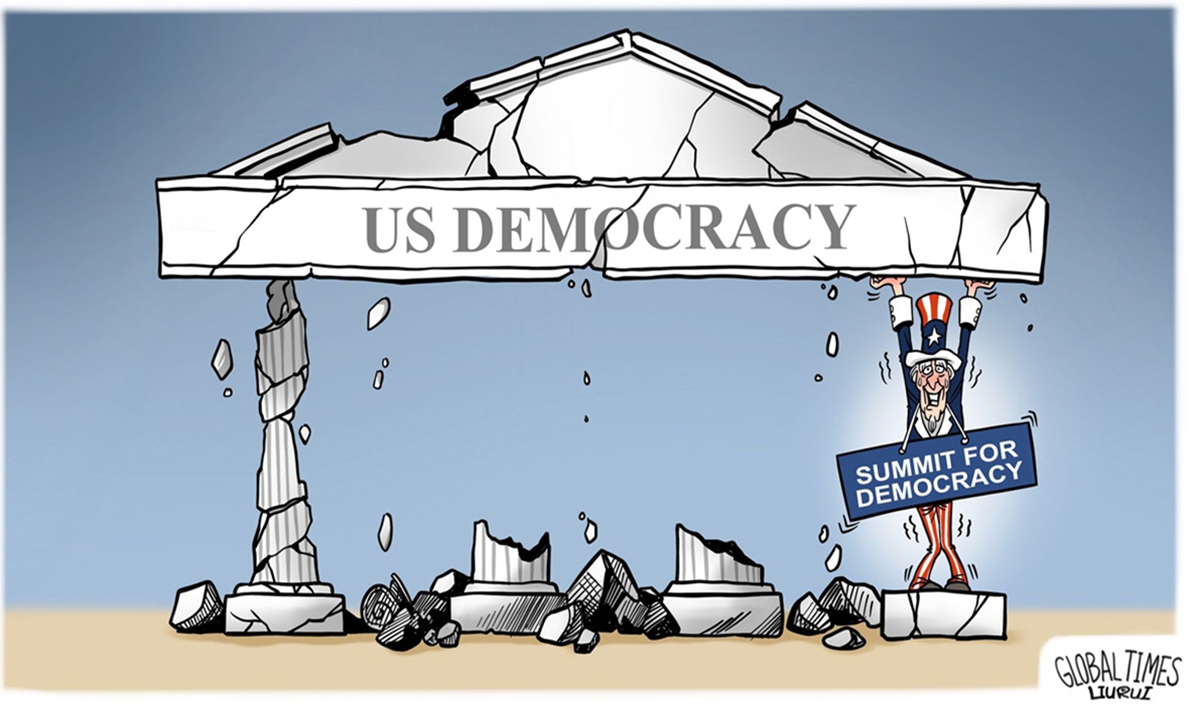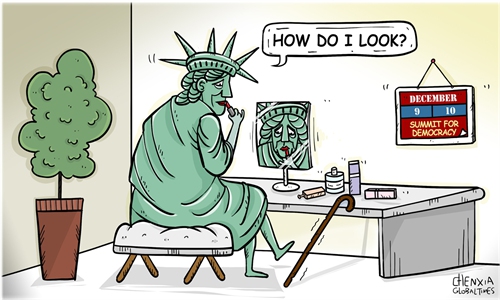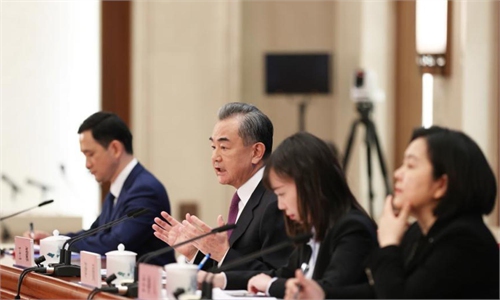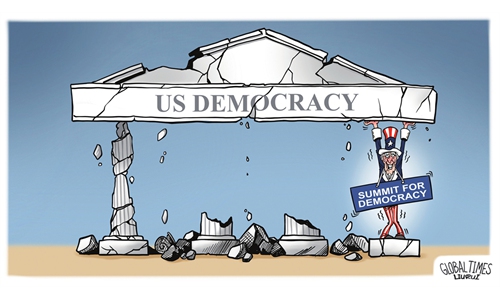‘Summit for Democracy’ needs to write a prescription for the US most: Global Times editorial

Crumbling democracy Illustration: Liu Rui/GT
The so-called "Summit for Democracy," meticulously organized by the US, kicked off on Tuesday. This time, it has paid more attention to the form than the first summit. In order to avoid criticism of "American-centrism," the Biden administration invited Zambia, Costa Rica, South Korea and the Netherlands as co-hosts, representing the five continents. According to the US, leaders from 121 countries and regions were invited to attend, eight more than at the first summit. However, most of the summit will take place online, undermining the form and influence that the so-called Summit for Democracy desperately seeks.On Monday, the day before the opening of the summit, in Tennessee, a heavily armed shooter broke into a school and killed three children aged only nine and three staff members, including the head of the school. This latest massacre stained the "democracy" flag raised by the US with bloodshed. President Biden said in an address that the shooting was "a family's worst nightmare."
Data shows that there have been over 100 mass shootings in the US so far this year, breaking a 10-year record. When many American families are living in a "nightmare," Washington's peddling of "American-style democracy" appears to be cruel and hypocritical. Against this backdrop, the "Summit for Democracy" appears even more pallid, resembling "the Emperor's New Clothes."
Interestingly, even many American media outlets have cried out "the emperor has no clothes." Take a look at the headlines of several US media articles on Monday: "Why is Biden doing another pointless Summit for Democracy?" "What can be salvaged from Biden's Democracy Summit," "The US doesn't need another democracy summit" and so on. These articles pointed out that the organization and decision-making process of the summit was chaotic, opaque, and lacking in inclusivity, and that there have been constant controversies over the selection of participants. These suspicions, criticisms and denials from within the US about the "Summit for Democracy" reflect the severity of the internal divisions in the country and expose the true colors of the summit.
Both the motives and outcomes of the so-called "Summit for Democracy" are anti-democratic, and it completely serves the diplomatic and geopolitical interests of the US. By drawing ideological lines and using the standards set by the US, it divides the international community into the so-called "democratic and non-democratic camps," and creates division and confrontation in a world that urgently needs unity and cooperation. Reports on the summit have generally emphasized that it is aimed at dealing with the conflict between Russia and Ukraine and China's rise. It is not surprising that it will once again become a propaganda event for Washington to persuade other countries to cooperate with its "competition" strategy. Such a face is not only ugly but also somewhat sinister.
The US has been touting that the essence of its political democracy is "freedom," "diversity," and "inclusiveness," but the "Summit for Democracy" has become a sharp satire of these values: Washington shuts its door and sets a single standard for democracy, not allowing questioning and discussion, and cannot tolerate the existence of other democracies that differ from American-style democracy.
Despite receiving a lot of criticism, Washington still convenes the "Summit for Democracy" again in a high-profile manner. Its purpose is to gain the power to define "democratic countries" and then use that power for its own benefits. This is an insult and a blasphemy to the spirit of democracy.
Under the impact of one round after another of extreme events such as frequent shootings, severe racial discrimination, rampant money politics, and the Capitol riots, the idol of "American-style democracy" has been riddled with wounds and it's on the brink of collapse. It lost its appeal to the world long ago. Some countries still attend this summit, but they do not necessarily endorse American democratic values, most of whom have different pursuits of interests. Even in the venue of the summit, most attendees believe that there is no single formula or model for democracy, and each country has its own political culture and democratic needs, which is essentially consistent with China's long-held position and is, in fact, a rejection of America's "democracy preaching."
The US is not qualified to be the "preacher of democracy" of the world, and by turning democracy into a business, Washington has overestimated its market. If Washington really attaches importance to this "Summit for Democracy," what it needs to do most is to use this opportunity to write a prescription for itself, as some American media outlets have pointed out, "The best thing that the U.S. could do to 'bolster' the cause of democracy in the world is to improve our own practice of it here."



